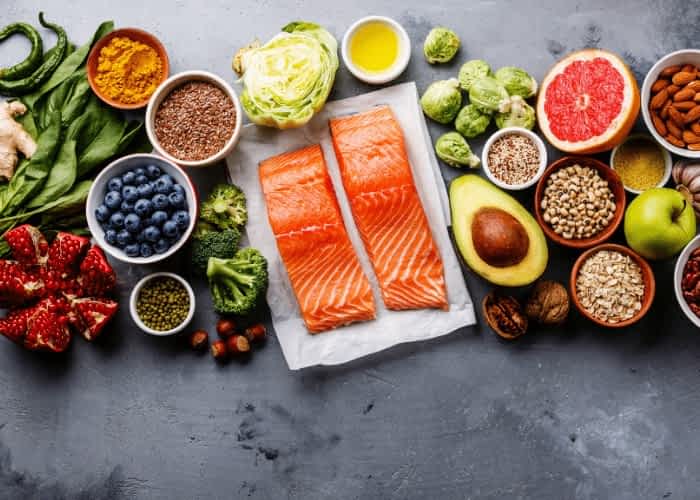
Is your diet causing you tooth problems?
We are only too frequently reminded how important following a balanced diet is for our health. There are countless resources in the form of apps, articles, magazines, podcasts and youtube videos that claim to provide the ultimate knowledge in managing our nutrition to maximise our wellbeing.
The media focus on health has been pushed to the forefront in recent years due to the fact that an ‘unhealthy diet and lack of physical activity are leading global risks to health’ according to the WHO. Obesity is one of modern-day society’s greatest threats reaching epidemic proportions across the world. Whilst undesirable for many social and psychological reasons, it is also one of the leading causes of heart disease, strokes, diabetes and arthritis and can reduce life expectancy by 8-10 years.
These issues have accelerated due to an overwhelming shift in our lifestyle and dietary habits. Our lives are busier than ever. We seek and have access to more over-processed convenience food than ever before. We have drifted further and further away from consuming fresh, plant-based produce rich in vitamins and minerals. It is too easy and irresistibly tasty to reach for high-energy, high-fat, high-sugar foods, and never more so than after a year in confinement.
It’s clear that our diets have evolved over the last 30 years and sadly to the detriment of our health. You might already have enough reasons to shake up your eating habits, but just to add insult to injury tooth problems are likely to become your next concern.
If your diet has been questionably beige or sugary sweet in recent years, your oral health will start to suffer. Before you hit the point that tooth problems become the bane of your life, start to consider how your diet might be affecting your teeth.
Which foods can cause tooth problems?
Too much of certain foods can lead to major tooth problems. However, if your diet lacks in certain foods, you aren’t giving your teeth and gums the chance they need to protect themselves and regenerate when they come to harm.
It’s no secret that sugary, starchy foods are notoriously bad for oral health. We probably do not need to tell you that a diet laden with sweets, cakes, fizzy drinks and ice cream is likely to cause you all manner of tooth problems. When you feed yourself with these types of foods, you are also feeding the bacteria in your mouth that is likely to attack your teeth and gums. If you start to notice bleeding gums, tooth sensitivity or an emerging cavity, the damage has already begun.
Whilst some foods will encourage tooth decay, others can help to fight against plaque, clean enamel and gums and restore some of the essential vitamins and minerals that help your teeth stay strong.
We could spend all day talking about the perilous damage a high-sugar diet will cause to your dental health, but rather than focus on the negative, let’s look at how you can adjust your nutritional intake to prevent and protect yourself from tooth problems.
Up your intake of these foods to prevent future tooth problems
Cheese
It’s not all doom and gloom! It might seem like all the fun stuff is bad for both your health, but thankfully cheese is not only deliciously appetising, it’s great for strengthening our teeth.
In fact, this is the case with many dairy products. It was no lie when your mother told you as a child that you needed to drink your milk to make your teeth grow strong. Milk, plain yoghurt, and cheese are all great fortifiers when it comes to teeth and general bone health.
Cheese contains high levels of phosphate, casein and calcium. This helps to restore tooth enamel and therefore prevents cavities from setting in. Cheese also stimulates saliva production, which helps maintain a neutral pH balance in the mouth, neutralising acidity and washing away the build-up of nasty bacteria.
If you are feeling peckish, rather than reaching for a carby, sugary snack that can be quickly popped into your mouth, go for a piece of cheese. It’s highly versatile, there’s a wide range to chose from and you’ll be doing your teeth a favour!
Crunchy raw veg
The key criteria here is choosing veg that is both crunchy, fibrous, and low in acidity. Some great options are carrot sticks and celery.
These kinds of vegetables are like nature’s own toothbrush. They clean both the surfaces and in between the teeth as you chew, scrubbing away at bacteria and plaque without having to visit the bathroom. During this process, you will create more saliva which again, helps neutralise the pH levels in the mouth and flush away unwanted visitors before the plaque has a chance to form.
High-fibre foods
The process of eating high-fibre foods will aid your oral health and prevent tooth problems. Sweet potato, whole grains, beans, legumes, seeds and nuts are full of dietary fibre. When consuming these foods you will benefit from the gentle cleansing action as you chew, but at the same time, they can inhibit the production of bacteria in the mouth.
Since fibrous foods are typically tougher to digest, you will produce a good amount of saliva during your chewing, which keeps acidity levels down and promotes healthy blood circulation in the gums.
Leafy greens
Jammed packed with vitamins, calcium and folic acid, leafy vegetables boost the activity of the blood vessels in your gums, which will help fight gum disease and restore gum health. Aside from the oral health benefits, they are super low in calories and high in fibre, so it’s a win-win for all the body.
Spinach, kale, salads, cabbage and broccoli are all excellent choices for preventing tooth problems. If you don’t already have enough in your diet, whizz up a handful in your smoothies to neutralise some of the fruit acids.
Fish and Seafood
Salmon, tuna, prawns and mackerel are loaded with Omega-3, which not only is great for your heart but offers excellent anti-inflammatory properties to your gums. Many fish are also rich in Vitamin D, which will help to absorb the calcium from other foods to keep your teeth strong.
According to Dental Patient News, ‘Harvard Medical School and Harvard School of Public Health published a study which found that polyunsaturated fatty acids (Omega 3s) found in fatty fish were effective in the treatment of periodontitis.’
The benefits of fish to your oral health, cannot be underestimated.
Can I prevent having tooth problems through diet alone?
Whilst there are many foods that are more beneficial for your oral health than others, you cannot rely on diet alone to prevent or cure your tooth problems.
However, alongside a consistent hygiene routine and regular check-ups at your dentist, incorporating more of these foods into your diet will give your teeth and gums the best chance of staying healthy.
Since our mouths are the doorway to our digestive system, they are the first point of contact that connects what we eat with the rest of our bodies. Our teeth might be strong, but they are not invincible. They become weaker over time and with age, which is why it is so important to make wise choices about diet and nutrition.
For peace of mind about your dental health before tooth problems begin to arise, book an appointment at your local Banning Dental Group Clinic.








